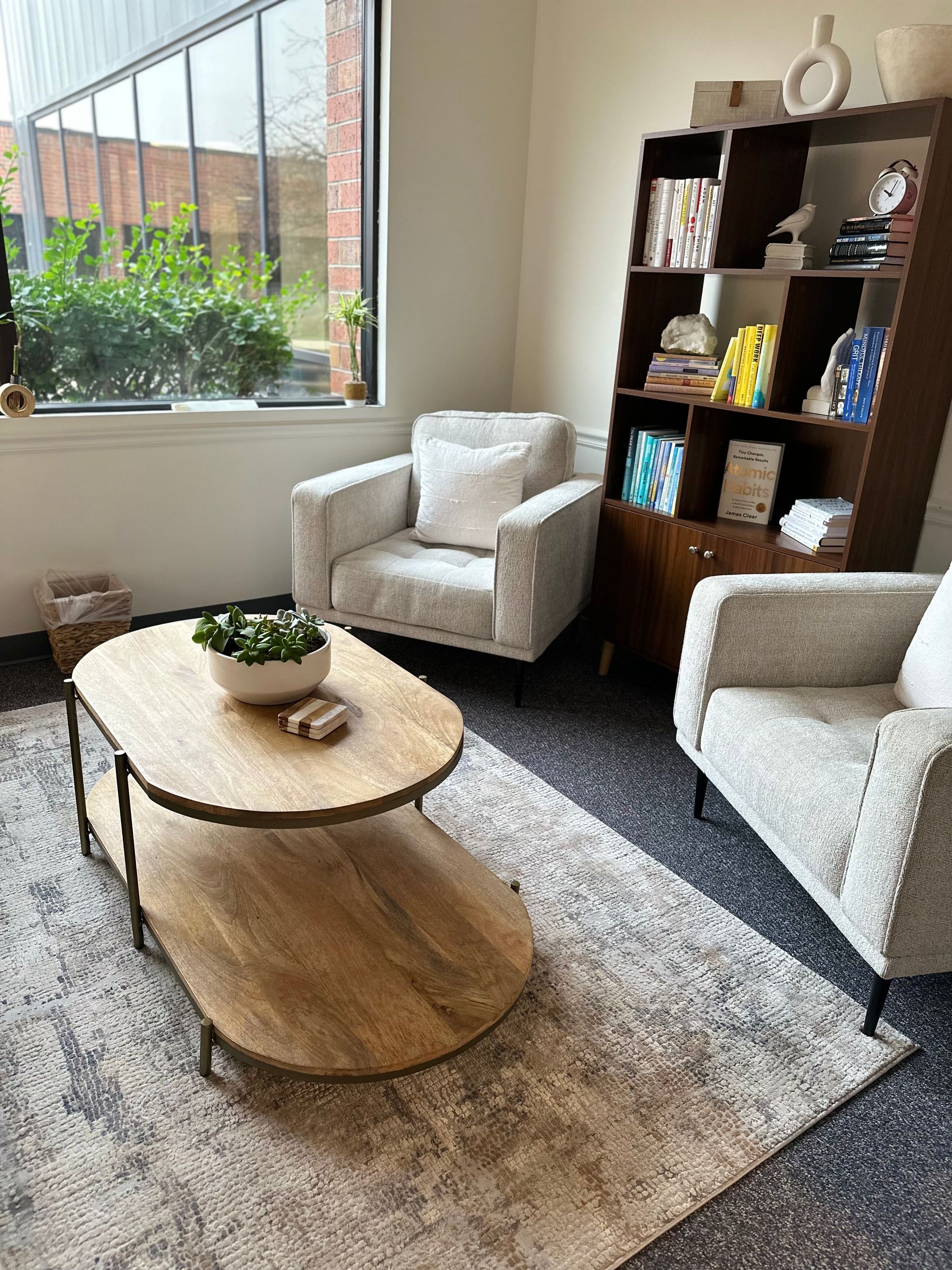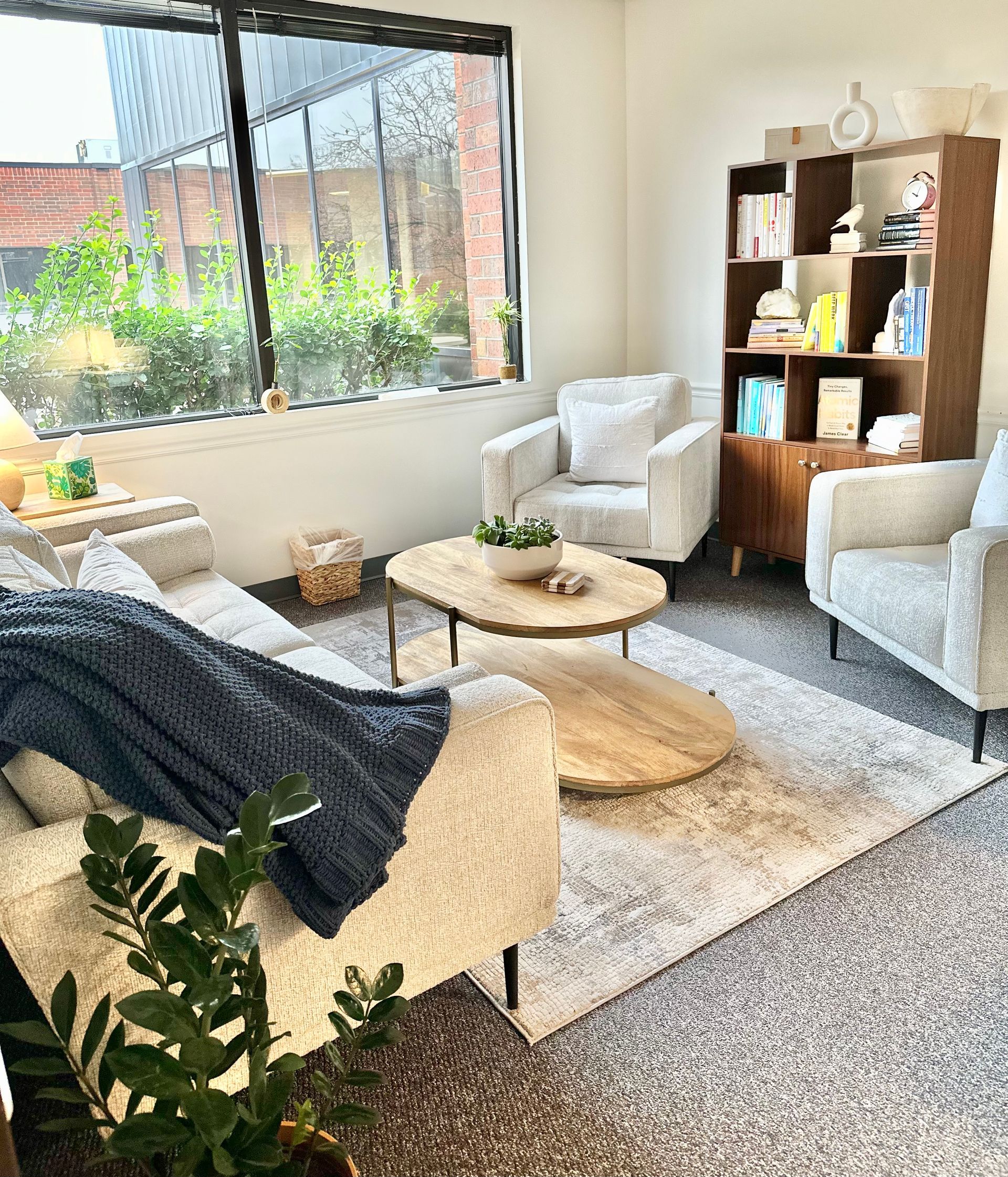14425 College Blvd. Lenexa, KS 66215
Business Hours
Monday-Friday 7am - 7pm
Saturday 8am- 2pm
Overcoming Insecurities: Boosting Your Confidence
Insecurities are feelings of inadequacy or uncertainty that we all experience to some degree. They can stem from negative thoughts about ourselves and manifest in various areas of our lives, such as body image, job insecurity, and social interactions. Understanding and addressing them is crucial for personal growth and building confidence. In this blog, we will explore the definition of insecurities, common types, signs of them, and their impact on our lives. We will also discuss techniques to overcome them, the importance of seeking professional help, and the positive changes that can occur when we embrace self-love and acceptance.
Understanding Insecurities
Understanding Insecurities
Insecurities are internal feelings of inadequacy or uncertainty that can significantly impact our mental health. Negative thoughts about ourselves often contribute to these, fueling self-doubt and a lack of confidence. Recognizing their signs is essential, as they can manifest in our thoughts, emotions, and behavior. By understanding them and their underlying causes, we can begin to navigate them more effectively and work towards building a stronger sense of confidence.
Definition of Insecurities
Definition of Insecurities
Insecurities are internal beliefs and feelings of inadequacy or uncertainty about ourselves, our abilities, or our place in the world. They can stem from various factors, including past experiences, societal pressures, and comparison with others. They often result in negative self-perceptions, where individuals doubt their worth, skills, or appearance. These negative thoughts can impact mental health, leading to feelings of anxiety, self-consciousness, and low self-esteem. Recognizing and addressing them is essential for personal growth, emotional well-being, and building healthier relationships.
Common Types of Insecurities
Common Types of Insecurities
Insecurities can manifest in various forms, affecting different aspects of our lives. One common type of insecurity is body image, where individuals feel insecure about their physical appearance, leading to feelings of self-consciousness and comparison with societal beauty standards. Another common one is job insecurity, which arises from fear of losing one's job, feeling inadequate in the workplace, or comparing oneself to others' professional achievements. Ones related to social media have also become increasingly prevalent, with individuals feeling pressured to present themselves in a certain way and comparing their lives to others' highlight reels. These can significantly impact our self-esteem, mental health, and overall well-being.
Recognizing the Signs of Insecurity
The feeling of inadequacy often leads to questioning one's decisions and abilities, affecting daily life. Recognition of these signs is the first step toward overcoming them. Social media can exacerbate feelings of inadequacy by promoting unrealistic standards. Seeking specific skills and positive feedback can combat these feelings. They can also manifest differently in relationships, affecting family and friends interactions. Acknowledging these signs and their impact is a crucial first step in addressing and overcoming these.
Personal Indications of Insecurity
Personal Indications of Insecurity
Insecurities can profoundly impact our daily lives, affecting our thoughts, emotions, and interactions with others. Negative thoughts about ourselves, such as inadequacy or constant self-criticism, are common indications of them. These thoughts can erode our self-esteem and confidence, leading to a lack of belief in our abilities. Body language is another way they manifest, as individuals may exhibit discomfort, such as avoiding eye contact, crossing their arms, or appearing tense. Feelings of inadequacy and self-doubt can make it challenging to handle setbacks, take risks, or assert ourselves in social situations. Recognizing these personal indications of them is the first step towards overcoming them and cultivating a stronger sense of self-confidence.
How Insecurity Manifests in Relationships
How Insecurity Manifests in Relationships
Insecurities can significantly impact our relationships, both romantic and platonic. Insecure individuals may struggle with trust, vulnerability, and emotional intimacy, often stemming from attachment issues developed earlier in life. They can make forming deep connections with others challenging, as individuals may fear rejection, abandonment, or judgment. Social situations can also trigger them, leading to a lack of confidence and difficulty engaging with others. Insecurity in relationships can create a cycle of seeking reassurance, doubting oneself, and feeling undeserving of love and affection. Understanding how they manifest in relationships is crucial for personal growth, healing, and building healthier and more fulfilling connections with others.
The Impact of Insecurities on Our Lives
The Impact of Insecurities on Our Lives
Insecurities can profoundly impact various areas of our lives, affecting our thoughts, emotions, and daily interactions. Insecure people often struggle with self-confidence, hindering their ability to pursue their goals, assert themselves, or take risks. The constant presence of negative thoughts and feelings of inadequacy can erode mental health, leading to anxiety, depression, and low self-esteem. Unaddressed ones can also impact our relationships, professional interactions, and overall well-being. Recognizing the impact of them is crucial to healing and developing a stronger sense of confidence and self-assurance.
Use the following links for more information:
https://cta-redirect.hubspot.com/cta/redirect/9253440/e6621957-0105-4bde-8a15-1744fb537137
https://cta-redirect.hubspot.com/cta/redirect/9253440/6ac54b8a-cf90-4c95-a7dd-af4a87983811
https://cta-redirect.hubspot.com/cta/redirect/9253440/5614c4eb-f647-460f-85b3-287a28132d46
https://cta-redirect.hubspot.com/cta/redirect/9253440/ce9ee3b4-0410-44ff-922e-acc5525e7b29
https://cta-redirect.hubspot.com/cta/redirect/9253440/a52938a5-33a2-4c2f-ab2c-09c1b99b0df4
https://pubmed.ncbi.nlm.nih.gov/32330652/
Consequences of Unaddressed Insecurities
Consequences of Unaddressed Insecurities
When left unaddressed, they can have long-lasting negative consequences on our mental health and overall well-being. They often lead to a constant feeling of inadequacy, where individuals doubt their worth, skills, or abilities. This can significantly impact daily life, as individuals may avoid new opportunities, relationships, or experiences due to fear of failure or rejection. They can also contribute to a negative feedback loop, where individuals may seek validation and reassurance from others, which can be exhausting and unsustainable. Additionally, unaddressed ones can lead to social isolation, a lack of self-care, and limited personal growth. By addressingthem and building confidence, individuals can experience positive changes in their mental health, daily life, and overall well-being.
Techniques to Overcome Insecurities
Challenging and Changing Negative Thoughts:
Reframing negative thoughts is a specific skill that can go a long way in overcoming them. By recognizing and altering these thoughts, individuals can make significant progress in combating the feeling of inadequacy. Seeking positive feedback from others and focusing on one's achievements rather than comparing oneself to others on social media can also help in this endeavor. Additionally, seeking professional help from family members or mental health professionals such as psychologists (PhD or PsyD) or clinical social workers (LCSW) may be necessary.
The Role of Self-Compassion in Battling Insecurities
Navigating them often requires specific skills, such as self-compassion, to challenge negative self-perceptions. Embracing imperfections and reframing thoughts can go a long way in battling the feeling of inadequacy. Self-compassion also extends to self-care and healing, enabling individuals to navigate their issues with clarity. Cultivating self-compassion is a powerful tool that empowers individuals to overcome them and embrace their individuality.
Challenging and Changing Negative Thoughts
Cultivating a mindset of gratitude and appreciation in daily life can go a long way in combating negative thought patterns. Engaging in activities promoting mental well-being and positivity helps develop specific skills to counter inadequacy. Identifying cognitive distortions and replacing them with realistic thoughts is crucial for overcoming one's issues. Additionally, practicing positive self-talk and mindfulness techniques can effectively redirect negative thought patterns.
Embracing Differences and Individuality
Embracing uniqueness involves accepting imperfections as part of your identity. Surrounding yourself with diverse perspectives and individuals from various backgrounds can foster inclusivity. By acknowledging and celebrating differences in others, societal norms and stereotypes are challenged, promoting the acceptance of individuality. Engaging in activities that encourage personal growth and self-expression goes a long way in overcoming feelings of inadequacy. Embracing differences entails embracing one's issues and supporting others toward positive feedback and self-acceptance.
The Importance of Physical Health
Regular physical activity is critical to enhancing overall well-being and promoting physical health. Mindful eating, which involves nourishing the body with wholesome foods, contributes to a positive body image and fosters a sense of self-worth. Additionally, prioritizing adequate rest and seeking professional guidance for personalized fitness and wellness plans can go a long way in improving one's physical health. Embracing one's insecurities and strengths is essential, allowing individuals to overcome inadequacy and achieve a balanced lifestyle.
Seeking Professional Help for Insecurities
Consider seeking guidance from mental health professionals for personalized support. Explore therapeutic approaches, such as cognitive-behavioral therapy, to address feelings of inadequacy. Utilize the expertise of licensed counselors or psychologists to develop coping strategies and navigate emotional challenges. Launch Wellness is at the forefront of insecurities therapy, and can help you overcome them. Embrace the journey of self-discovery with the help of qualified professionals who can assist you in overcoming your insecurities and a long way toward building confidence.
Progress over Perfection: A New Perspective
Embracing the notion of 'good enough' can help alleviate perfectionism, allowing for greater flexibility and adaptability. Individuals can foster resilience and reframe setbacks as opportunities for learning and growth by celebrating incremental progress and small victories in personal growth. This shift from perfection to continuous improvement fosters a new perspective on personal development, emphasizing adaptability and exploration.
Practicing Self-Love and Acceptance
Embracing self-compassion involves treating oneself with kindness and understanding while engaging in activities that foster emotional well-being. Acknowledging personal limitations helps challenge self-criticism, and fostering emotional intelligence aids in managing feelings of inadequacy. Embracing vulnerability paves the way for genuine self-acceptance and love, a specific skill that can go a long way in overcoming one's insecurities. It's essential to recognize the impact of social media and seek positive feedback from family members to navigate the journey toward self-love and acceptance.
How Do Insecurities Affect Others Around You?
The impact of insecurities on interpersonal relationships and social interactions is significant. Insecurities can influence communication, emotional connections, and even family dynamics. They may also manifest in professional environments, affecting collaborations and teamwork. Understanding these effects can help foster healthier relationships and create a more supportive social environment.
Have You Ever Wondered What Life Would Be Like Without Insecurities?
Imagine a life free from the constraints of self-doubt and insecurity. Embrace the potential for personal growth and fulfillment in the absence of insecurities. Experience the positive impact of confidence and self-assuredness on daily life. Explore new skills and talents without the hindrance of insecurity. Envision a future where self-assurance prevails, transcending insecurities.
Conclusion
In conclusion, overcoming insecurities is not an easy task, but it is possible with self-reflection, self-compassion, and a willingness to challenge negative thoughts. Embracing your differences and individuality can help build confidence and self-esteem. Taking care of your physical health is also essential, as it can positively impact your mental well-being. Seeking professional help is a viable option for those struggling with deep-rooted insecurities. Progress is more important than perfection; practicing self-love and acceptance is critical to overcoming insecurities. Lastly, it's worth considering how your insecurities affect those around you and the potential for a life without them. Embrace the journey of boosting your confidence and watch how it positively impacts your life and relationships.

Slide title
Write your caption hereButton
Slide title
Write your caption hereButton
Slide title
Write your caption hereButton
Slide title
Write your caption hereButton
Slide title
Write your caption hereButton
Slide title
Write your caption hereButton
Slide title
Write your caption hereButton
Slide title
Write your caption hereButton
Slide title
Write your caption hereButton
Slide title
Write your caption hereButton
Book Your Appointment Today.
Showing up is the first step to change.
Email: info@launch-wellness.com
Call: 913-353-2926
Send A Message:
Thank you for contacting us.
We will get back to you as soon as possible.
Please try again later





